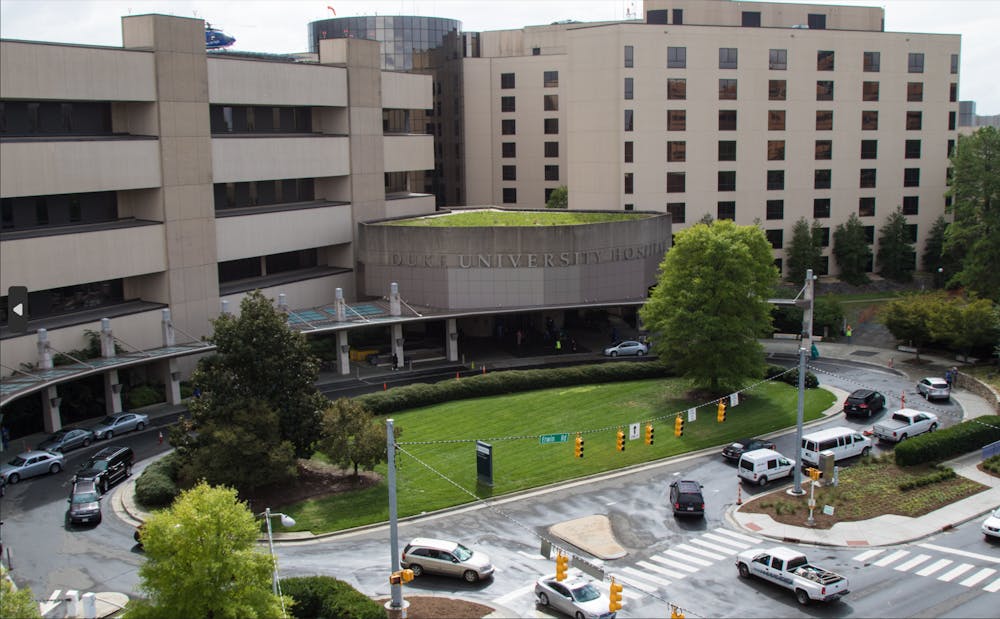The Duke Clinical and Translational Science Institute (CTSI) recently launched the Center for Precision Health (CPH), the result of a collaboration between CTSI and the Precision Genomics Collaboratory which focuses on how genomic research can transform patient health.
Led by Director of the CPH Svati Shah and Julie Eckstrand, executive director of the CPH, the Center aims to create a network through which Duke scientists and researchers in health data and genetics will be connected to clinical departments to work together to expand clinical genetics and its relevant research for improved personalized healthcare.
“The vision of our Center for Precision Health is to harness the power of genomic biomarker and health data to transform patient care and population health,” Shah said.
According to Shah, precision health is a field of medicine focused on personalizing medical treatments according to the patient’s specific needs — genetics, health of a patient’s systems and what type of medicine works best for their specific context.
Shah notes that traditional healthcare uses data-driven solutions based on outcomes from an aggregate of patients, and while precision health has had some success, it hasn’t translated into larger success due to a disconnect between research and clinics. Shah and the CPH seek to change that.
According to Shah, the work scientists are doing will be integrated with the clinical aspects of healthcare to create a more comprehensive, effective profile for patients using data on genetics.
The new center will have programs including population genetics, translational discovery, precision health education and community engagement and ethics.
The population genetics program will employ precision health to help patients learn about diseases they are at risk of and may already have, helping their progress in their “diagnostic odyssey,” according to Shah. The translational discovery program will help progress research into precision health and genetics.
The center will also serve as the home for OneDukeGen, Genomic Sequencing Study and Biorepository, a research study regarding genomic medicine.
Here, biological samples are collected and analyzed for use in research related to different types of diseases, with major potential for discovery and analysis. This work will be performed on 150,000 Duke Health patients and research study participants, providing them with advice relating to their personal health decisions.
“There's so many different components of Duke, but really, [OneDukeGen] is about integrating the School of Medicine with the health system and all the other people that we need to make sure we do this right,” Shah said.
Community engagement involves providing the local Durham and broader Research Triangle communities with the resources to understand the ties between genetics and disease. The program also has an ethical arm dedicated to understanding the impact of genomic medicine, and “making sure that what we're doing is the right thing for our patients and our community,” Shah said.
The precision health education program aims to teach healthcare practitioners and providers about precision health’s basics, while training new generations of precision health research professionals.
She also noted ethical concerns that had been brought up by clinicians.
“[People are] consenting for a research study, but they're gonna become patients, when we tell them, ‘Hey, you have this genetic risk [or disorder].’ It's like this blurred line between research and patient care.”
These concerns, as well as other potential issues, are continuously being addressed by the CPH to maintain their commitment to the community, according to Shah.
Additionally, the CPH will be taking actions to ensure community members are continuously able to provide feedback on Duke’s precision health program. Shah mentioned that there is a community advisory board already in place, for example.
With the ultimate goal of improving the health of the Durham community, alongside building engagement and trust, community members had surprising reactions.
“I thought there'd be a lot of pushback on this,” Shah said. “I think it was actually almost uniformly really, really positive. I'm already getting emails from just random people saying, ‘Can I be part of the study?’”
Get The Chronicle straight to your inbox
Sign up for our weekly newsletter. Cancel at any time.
Yasmine Kaplan is a Trinity junior and a staff reporter for the news department.
Ahilan Eraniyan is a Trinity sophomore and a staff reporter for the news department.

